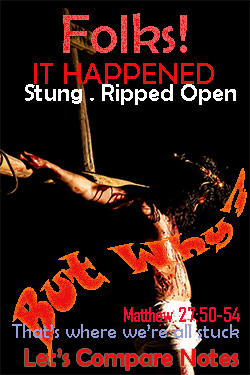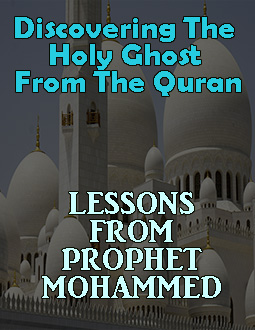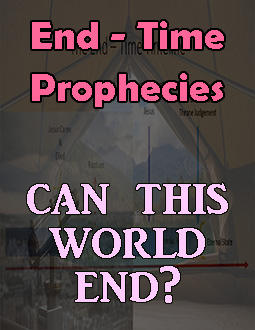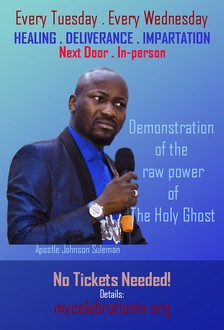The Mystery of Settlement on the Cross
David in the Goat shed - Part 2 of 3
The cross is a tree of shame and disgrace. It also represents the point of where man crosses from trust in the physical to appreciate the existence of the celestial. When man chooses to accept the reality of God and to submit to God’s authority. The cross represents where one submits their smartness in exchange for supernatural guidance as a reward for salvation. Was the Carpenter’s Son on The Throne or The Tree of Shame?
To be honest, the Jews went through a lot. As they went from captivity to captivity, to in-fighting, intermarriages, co-mingling, and idolatry. They were so confused a people that they practically expected a mighty king to drop from heaven and bring sanity to their country. The emergence of such a man from the celestial is the least that can make them believe that the Messiah has finally come. Someone from the lineage of David, the killer of giants is certainly believable. The prophecy that someone from the linage of David gave them the impression of such a mighty warrior as their savior. A carpenter’s son from a manger among goats certainly did not fit into that picture. Princes are not born among goats, certainly not to tradesmen but to men of nobility.
Therefore, it was easy for them to deny all the circumstantial spiritual and physical evidence that surrounded them. Even the death of all the innocent babies in Bethlehem had no appeal to common reason among them. To the extent that when Jesus began to show leadership traits, the predominant religious factions aligned to fight him. Anywhere that Jesus ministered, the Pharisees, the Sadducees and the Scribes showed up. They were always around to catch him at his words, record it and report back to the priests and their councils. All in order remove this sacrilege from their lands so that they do not offend God and Rome as they were carefully negotiating their national independence from Rome. The negotiations were taking too long and so a mighty warrior would have been more realistic.
Religious leaders were skeptical. Their determination was not fueled by the jealousy of a potential rival, rather they were determined to smoke out any fakes that did not meet the requirements of the expected Messiah. Even though, they lived in relative peace after they returned from the Babylonian exile, by the time that Jesus was born the Jews were tired of living under foreign rulers. Teachers of religious laws flourished as people continued to examine the scriptures more closely and people became more curious about God’s plan to answer their prayers for deliverance (2 Samuel 7: 11-16).
The main religious groups were divided along lines of their interpretations of the Torah. The Sadducees did not mind that political leaders could become kings and priests to rule the nation. Up until this time, the priests ruled from the Temple. The Pharisees insisted that only descendants of David could be king, and a descendant of Aaron could become a priest. There were other smaller groups and factions. Their arguments and rivalry continued until Pompey sent Antepater from Rome to rule over the Jewish nation. Herod The Great was the son of Antepater and succeeded his father.
Therefore, they were looking out for a strong warrior who could overthrow the government of the foreign rulers and probably take over the current empires running the world. That way, Israel can then assume the promised government of the world according to prophecy. Neither of the main religious groups approved of a boy born in the manger to a carpenter as the Messiah. That was unimaginable.
Even though, the Pharisees believed in the supernatural, angelic manifestations and the resurrection, they were legalists who cannot agree with Jesus compromising the laws of Moses with his disregard for the rules and ability to forgive sins (Isaiah 9:6; 61:1-2; Mark 14:62; Luke 4:21; John 4: 25-26). That was simply out of bounds for any man who took his study of the Torah seriously. The Sadducees on the other did not care too much about his overreach in religious matters but he was becoming so much of a trouble that he may infuriate Rome and cause Rome to retaliate against Israel. Therefore, both sects agreed to get rid of him because he was becoming trouble and irritating the powers that be. Herod certainly had the Edomite destiny to fulfill.
There were so many prophecies about him and the paradise that his kingdom promises. Yet, for several generations Israel suffered declining fortunes with no end in sight. Israel clung on to the implied specifications in the prophecies but cared less about the declared intention of God for all nations attendant to those prophecies. It is not unusual for frustrated people to feel that way making them to miss the important signals. They willy-nilly sacrificed their own for the temporary political salvation of their nation. This irrespective of the hint of God’s intentions for others encoded in the prophecies.
Unfortunately, even the resurrection story has not changed the situation very much. The magnitude of doubt about his identity was so much that Thomas was crushed when he saw the imprints of the nails in the hands of Jesus Christ. For the first time, Jesus was addressed as my Lord and My God (John 20:28). In addition to the many miracles and signs that Jesus showed during his physical ministry; the events at his baptism including the claim of John The Baptist, Jesus and the dove; the record of the incidents at his arrest in Gethsemane; the torn veil of the Temple; and the resurrection of the dead because of the earthquake caused by the death of Jesus, it remains difficult to believe that even the benefit of hindsight does not encourage many to believe that Jesus is the Messiah.
Point of the Cross - Salvation Is Eternal
The cross of Jesus Christ was a point of crossing. It is a confluence of several factors that changes Christianity from a Jewish property to the gospel shared with gentiles. The vast reach and influence of the Roman Empire provided a mature platform for the gospel to spread all over the world. Death on the cross was the recommended punishment for blasphemy in the laws of Moses. The Jews wanted Jesus dead because of blasphemy but accused him of tax evasion, treason and terrorism which made political sense to Rome. The business of blasphemy did not interest Rome and may not have sanctioned such harsh judgment compared to fomenting rebellion for example.
The prophets told us to expect the Messiah even though, none of them had a total grasp of the immensity of the agenda. Their focus was a seed of David that will become a ruler of the world. Israel by covenant was destined to rule the world anyway. And the people have been waiting for too long to see that happen. Instead, they appeared locked up in the perpetual bondages of foreign feuding emperors who become super-powers. The challenge of Rabbi Saul who transformed into Apostle Paul, and virtually wrote most of the books of the New Testament was to prove that God had the mystery all planned out, even, before starting creation. All these theories converge at the cross where the Jesus’ parable of celebrating the prodigal son begins to make sense.
Convergence of the kingdoms and empires as channels for evangelism
The Babylonian kingdoms and the Persian kingdoms were conquered by the Greeks. That overthrew the reign of the eastern empires and replaced them with a western might that expanded to dominate western India, the Mediterranean and the Middle East regions. This opened access for the Jewish nation to the west as well. This channel facilitated the quick spread of the gospel. The scriptures were already translated into Greek (The Septuagint) because much of the social culture was now Greek, and included the Jews especially, those of them dispersed abroad. By the time the New Testament scriptures were written, they were mainly in the Greek language and everyone, Jews and gentiles could understand the content.
We learnt about some of the unique strengths of the various kingdoms and empires that ruled over Israel until Israel was annexed by Rome. One of the strengths used to entrench their reign was to give their captives freedom to continue worship their own gods. So, the Jews had religious authorities over them that served as political advisers to the king. These political leaders were wary of attracting undue attention of Rome by a tiny Israel and the actions of Jesus were not helpful in this regard. To them, his growing followership was troubling. He violates the principles of the Torah and forgave sins equating himself to God. Jesus instead of fading away like the other fake prophets was waxing stronger. Thus, the socio-political necessity became to eliminate Jesus.
The leaders convinced the people that calling himself ‘Son of God’ was nothing but blasphemy and according to the scriptures, invited a curse, the atonement for which is capital punishment by hanging from a tree (Deuteronomy 21:23). Only Rome had power to approve such capital punishment and may not be interested in such local matters as blasphemy to their local god. Therefore, the Jews trumped up charges that Jesus was encouraging people not to pay taxes, claiming that he was ‘King of The Jews’, and causing riots all over the place including planning to destroy the Temple. They presented these to Rome through Pilate. You can imagine why Pilate was worried about finding proof for these allegations, and why the appellation ‘King of the Jews’ needed to hang on His cross. It was not purely about mocking Jesus; it was proof to be relayed to Rome. The challenge of the empire’s authority was abominable. So, who would dare appeal such a judgement? No one. Case close.
Mystery of the Cross
A three-part discussion that reviews the significance of the cruxicifion in view of the spiritual gift of salvation within the prevailing political climate that the Jews found themselves and how that affects everyone else who is not a Jew.
| Part 1 - Identifying The Messiah | Part 2 - David In The Goatshed | Part 3 - All Are Not Sinning |
Mission Fields
People Saw It

Comments

Our Facebook page linked directly above is a very vibrant community where various topics get fleshed out. We also engage in discussions on Twitter and our LinkedIn group is growing beyond imaginations. Feel free to post your comments in your favorite format.













